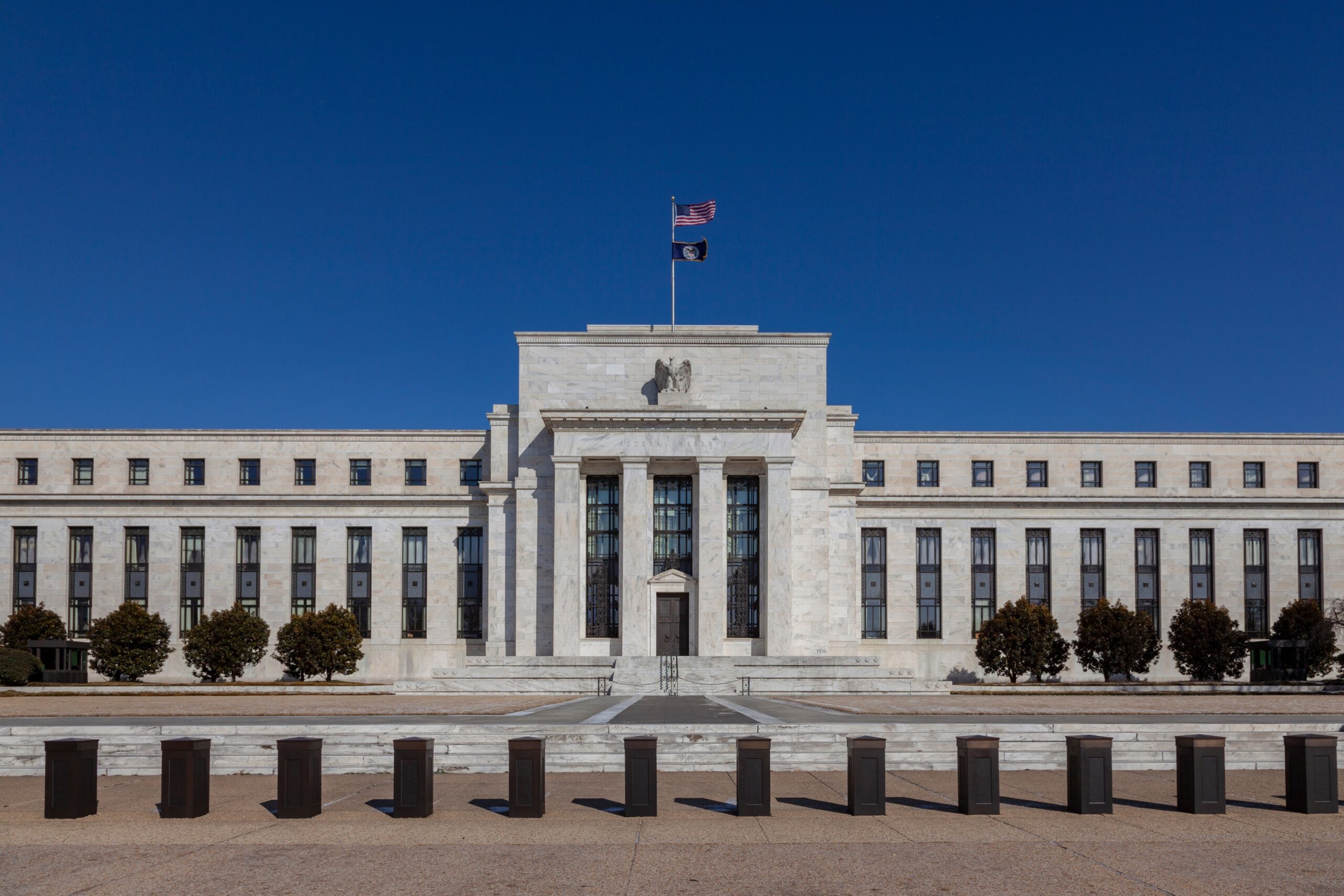The Federal Reserve’s decision to lower interest rates by 50 basis points signal a promising start for 2025, offering a hopeful sign of recovery for a private asset sector impacted by a stagnant deal market and slowing inflow.
The decision to cut by more than expected indicates that the U.S. central bank is focused on supporting the labour market and ensuring a so-called economic soft landing. Any lingering concerns about inflationary pressures have been put to one side – for the moment at least – after recent data showed annualised price rises were tracking close to the Fed’s target level.
This reduction brings rates down to a range of 4.75% to 5%, following similar actions by central banks in other developed economies as inflation rates have retreated from recent decade highs. The cut exceeded the expectations of economists polled by Bloomberg who thought Federal Open Market Committee members would vote for a more cautious quarter point reduction.
That’s not to say the Federal doesn’t do outsized cuts. The last time rates were sliced aggressively was in March 2020 during the Covid outbreak when the Fed slashed rates by 150 basis points over two emergency meetings. Before that you need to go back to the Great Financial Crisis (GFC) in 2008 to find a time when the Fed hacked rates by 50 basis points or more at a single meeting.
This time, the data is less clear about what lies ahead. The general consensus suggests that the global economy will continue to navigate its challenges. While some may fear a serious economic contraction, there isn’t enough evidence to support that view. However, risks still exist. Conflicts in the Middle East and Ukraine could escalate, and China’s economic downturn does not seem to have reached its lowest point yet.
Private equity inflows set to accelerate
For now, private asset markets are on track to resume their upward growth trend, supported by fresh inflows from high net worth and mass affluent investors and a preference for companies to stay private for longer.
As a result, private equity assets alone are forecast by researchers Preqin to double to $12 trillion by 2029. Lower rates, if the trend is sustained, enables private equity firms to benefit from the ability to recapitalise their portfolio companies, taking advantage of cheaper debt to restructure or refinance existing loans. This could lead to higher distributions to investors, potentially reinvigorating the market for private debt and equity.
Even after last week’s U.S. rate cut, the cost of borrowing remains near a post-GFC record high. The Summary of Economic Projections (SEP) from the Federal Open Market Committee (FOMC) indicates a gradual approach to interest rate cuts over the next year. According to the SEP, we can expect a further reduction of 50 basis points in 2024, followed by an additional 100 basis points in 2025. This outlook provides further reassurance to private equity managers.
On Thursday, the day after the Fed’s decision, the Bank of England’s monetary policy committee decided to keep rates on hold at 5% with Governor Andrew Bailey saying they wanted to see more evidence that inflation was under control.
At present levels, borrowing costs continue to impact operational performance and limit investor returns. Data from Preqin shows the internal rates of return (IRR) at buyout and growth private equity funds are projected to decline over the coming years to 13.9% and 11.7% (2023-2029F period), respectively, down from 15.7% and 13.8% during the 2017–2023 period.
Positive outlook for private debt investments
Data from Preqin indicates that global private debt assets under management (AUM) are projected to reach a low point in 2025 before rebounding to an all-time high of $2.6 trillion by 2029. While interest rates may decline, they are not expected to return to pre-pandemic lows in the near future. As a result, yields are anticipated to remain notably elevated, albeit with a slight moderation. This trend presents a silver lining for direct lenders, indicating a favourable environment for those who can navigate the complex relationship between risk and return.
Additionally, a decrease in interest rates could spark a rise in demand for riskier assets. Preqin forecasts that distressed debt will yield the highest annualised returns, increasing from 12.46% in 2023 to 13.36% by 2029. This scenario could also enhance deal flow prospects in private equity, which would in turn boost activity in private debt, given that many private debt transactions are sponsor-backed. The anticipated increase in deal flow for private debt is likely to more than offset any minor decline in performance associated with a lower risk-free rate, as private debt loans are usually floating in nature.
Real estate managers can begin to breathe again
One of the most beaten down asset classes in recent years, commercial real estate managers will be especially thankful the Fed decided to go big at this week’s meeting. The sector has been hit by a double whammy of rapidly rising repayment rates and a work from home culture that depressed demand for city office space. Real estate prices were hit hard and defaults rose with some fund IRRs turning negative.
Falling interest rates could power the asset class to year-on-year improvements in IRR with Preqin forecasting an annualised 9.3% return though to 2029, up from 7.8% during the pandemic years. The researchers also expect real estate fund raising levels to outperform the broader private asset sector.
In conclusion, the Fed’s bold 50 basis point rate cut instils optimism in private markets despite previous challenges. However, the cost of borrowing remains high, and it will take time for the market to recover its pre-pandemic bullishness. Unless a sudden economic downturn occurs, any further interest rate cuts will be cautious and deliberate, with central banks unlikely to return to the historic lows that private asset managers experienced in the last decade.
About the author
Emma is IQ-EQ’s Group Chief Commercial Officer, based in London. With over 26 years of experience in financial service institutions, Emma has an established track record of delivering commercial business value in senior executive positions across the industry. She is passionate about sales, relationship building and focused on nurturing and expanding relationships with existing clients as well as diversifying the business mix by attracting new clients.



